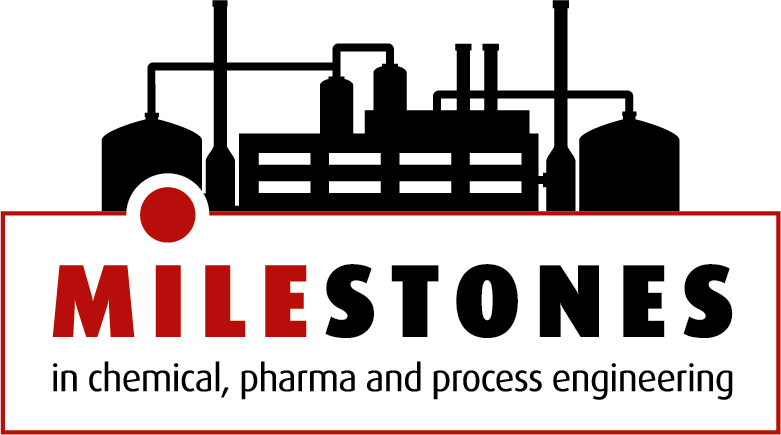:quality(80)/images.vogel.de/vogelonline/bdb/1804600/1804631/original.jpg)
Austria: Engineering OMV to Build Pilot Plant for Producing 2nd-Generation Biofuels
OMV intends to develop a ‘Glycerin2Propanol’ pilot plant at its Schwechat Refinery in Austria which will produce second-generation biofuels. The company will use a patented process for the production phase and the unit is expected to be operational in 2023.
Related Companies

Schwechat/Austria – OMV has plans to build a pilot plant at its Schwechat Refinery in Austria which will produce second-generation biofuels from 2023 using a patented process developed inhouse. The plant involves advanced biofuels that are not in competition with foodstuffs. A typical refining process will see the waste-based substance glycerin turn into bio-alcohol, which when added to gasoline reduces its CO2 footprint.
“After more than five years of research, we are now investing in a ‘Glycerin2Propanol’ pilot plant and thereby contribute to the further development of advanced biofuels. The new plant will be a part of the existing value chain in the Schwechat Refinery and is an additional building block in OMV’s sustainable business model”, said Thomas Gangl, OMV Chief Downstream Operations Officer.
The plant will use a catalyst, or reaction accelerator, developed inhouse by OMV, to produce propanol (an alcohol) from glycerin. Glycerin is a byproduct or waste product from the production of biodiesel, as well as the manufacture of detergents and soaps, but it is also considered an advanced feedstock under the European Union’s Red II (Renewable Energy Directive). The propanol produced in this way will then be used as a bio-additive for gasoline. Its other applications include being a sustainable feedstock for the chemicals market as a replacement for fossil-based propanol.
OMV is set to invest around 36 million dollars (30 million euros). Of this, around 8.2 million dollars (6.9 million euros) will come from the Austrian Research Promotion Agency (FFG). Another source of funding is the Covid-19 premium. The ‘Glycerin2Propanol’ pilot plant will be built at the Schwechat Refinery beside the Reoil plant so that both units can utilize a single measuring station, exploiting synergic effects through a shared-operator concept. Construction is set to start in the second quarter of 2021. The ‘Glycerin2Propanol’ pilot plant should be operational in 2023.
The capacity of the pilot plant will be 1.25 million litres of propanol per year. This will lead to a CO2 reduction of around 1,800 metric tons. 1.2 litres of crude glycerin is needed to produce a litre of propanol. Under moderate temperature and pressure, 1 barrel (= 159 litres) of propanol will be produced per hour in an energy-efficient process.
The long-term plan is to commercialize the technology in order to produce around 125 million litres of propanol per year and reduce CO2 by around 180,000 metric tons.
(ID:47260045)




:quality(80)/images.vogel.de/vogelonline/bdb/1802400/1802411/original.jpg)
:quality(80)/images.vogel.de/vogelonline/bdb/1799900/1799924/original.jpg)
:quality(80)/images.vogel.de/vogelonline/bdb/1799500/1799527/original.jpg)
:quality(80)/images.vogel.de/vogelonline/bdb/1804800/1804827/original.jpg)
:quality(80)/images.vogel.de/vogelonline/bdb/1804800/1804808/original.jpg)
:quality(80)/images.vogel.de/vogelonline/bdb/1804500/1804587/original.jpg)
:quality(80)/images.vogel.de/vogelonline/bdb/1803900/1803963/original.jpg)
:quality(80)/images.vogel.de/vogelonline/bdb/1797000/1797083/original.jpg)
:quality(80)/images.vogel.de/vogelonline/bdb/1794500/1794521/original.jpg)
:quality(80)/images.vogel.de/vogelonline/bdb/1795400/1795494/original.jpg)
:quality(80)/images.vogel.de/vogelonline/bdb/1793300/1793348/original.jpg)
:quality(80)/images.vogel.de/vogelonline/bdb/1803800/1803811/original.jpg)
:quality(80)/images.vogel.de/vogelonline/bdb/1803100/1803151/original.jpg)
:quality(80)/images.vogel.de/vogelonline/bdb/1801100/1801105/original.jpg)
:quality(80)/images.vogel.de/vogelonline/bdb/1801000/1801031/original.jpg)
:quality(80)/images.vogel.de/vogelonline/bdb/1804300/1804360/original.jpg)
:quality(80)/images.vogel.de/vogelonline/bdb/1793300/1793360/original.jpg)
:quality(80)/images.vogel.de/vogelonline/bdb/1790500/1790551/original.jpg)
:quality(80)/images.vogel.de/vogelonline/bdb/1781300/1781356/original.jpg)
:quality(80)/images.vogel.de/vogelonline/bdb/1804800/1804844/original.jpg)
:quality(80)/images.vogel.de/vogelonline/bdb/1804800/1804806/original.jpg)
:quality(80)/images.vogel.de/vogelonline/bdb/1804400/1804415/original.jpg)
:quality(80)/images.vogel.de/vogelonline/bdb/1797900/1797927/original.jpg)
:quality(80)/images.vogel.de/vogelonline/bdb/1797600/1797603/original.jpg)
:quality(80)/images.vogel.de/vogelonline/bdb/1788100/1788142/original.jpg)
:fill(fff,0)/p7i.vogel.de/companies/5f/98/5f98fbb2e7bf2/05-trm-filter-logo-with-slogan-en-alt.png)
:fill(fff,0)/images.vogel.de/vogelonline/companyimg/60900/60956/65.jpg)
:fill(fff,0)/images.vogel.de/vogelonline/companyimg/122600/122692/65.png)

:quality(80)/images.vogel.de/vogelonline/bdb/1799300/1799313/original.jpg)
:quality(80)/images.vogel.de/vogelonline/bdb/1760500/1760513/original.jpg)